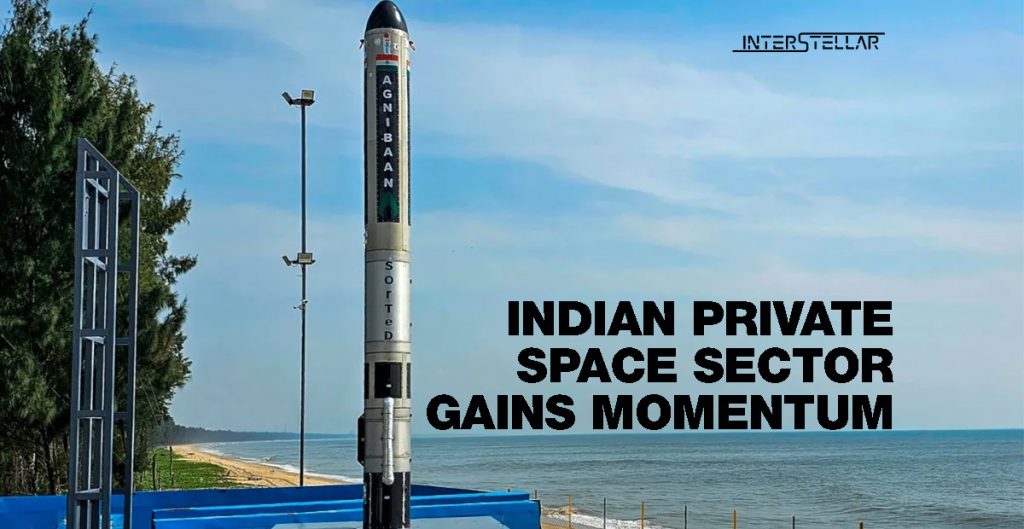Agnikul Cosmos, an IIT-Madras-incubated space tech startup, achieved a remarkable feat for the Indian space sector by successfully launching the world’s first rocket with a single-piece 3D-printed engine on Thursday. This achievement occurred two days after the launch of Agnibaan’s “SubOrbital Technological Demonstrator or SOrTeD” was postponed. The mission featured a single-stage rocket equipped with Agnilet, a semi-cryogenic engine, laying the groundwork for the upcoming launch of Agnibaan. Agnibaan is a highly adaptable two-stage launch vehicle designed to transport a payload of 300kg to an orbit of 700km. This significant accomplishment marked several milestones and underscored the growing prowess of the Indian private space sector.
Thursday’s mission marked three significant achievements. First, it demonstrated India’s first launch from a private Launchpad (Agnikul Launch Pad in Sriharikota named Dhanush). Second, it showcased the country’s first semi-cryogenic engine-powered rocket launch. Third, it utilized the first single-piece 3D-printed engine designed and built domestically to power a launch vehicle.
Agnikul’s first flight, the ‘SOrTeD’ mission, is a unique endeavour with multiple objectives. It serves as a test flight, demonstrating the capabilities of in-house and home-grown technologies. The mission also aims to gather crucial flight data and ensure the optimal functioning of Agnibaan’s systems, paving the way for future space exploration.
Lt. Gen. (Retd) AK Bhatt, Director General of the Indian Space Association (ISpA), hailed the mission as a historic milestone, emphasising its profound impact on India’s burgeoning private space industry. He underscored that this launch, in conjunction with the recently introduced guidelines for the implementation of the Indian Space Policy 2023 by IN-SPACe and the new FDI regulations, will undoubtedly bolster global confidence in India’s private space industry and its growing capabilities.
Hailing Indigenous design and innovation, ISRO Chairman S Somanath said, “The success involved many firsts, including a 3D-printed semi-cryogenic engine and flight-control systems, demonstrating the prowess of Indigenous design and innovation. It motivates Isro to support space startups and non-governmental entities for innovation to create a vibrant space ecosystem in the country.”
The Agnikul team, comprising more than 200 engineers and guided by 45 former ISRO scientists, is making significant strides in the space industry. The firm has plans for an orbital mission towards the end of the financial year 2024-25 and regular customer flights from 2025. In a series of groundbreaking achievements, they showcased the country’s first semi-cryogenic engine-powered rocket launch and utilised the first single-piece 3D-printed engine. These milestones are a testament to Agnikul’s commitment to innovation. Adding to their list of firsts, Dhanush was established at the Satish Dhawan Space Centre, ISRO’s spaceport in Sriharikota, on 25 November 2022.
Dhanush is a revolutionary product designed to guarantee a reliable and consistent launch process. It comprises two sections: the Agnikul Launch Pad (ALP) and the Agnikul Mission Control Centre (AMCC), located 4km apart. Critical systems connect these sections, ensuring 100% operationality during the countdown.
Agnibaan is the second privately developed rocket after Vikram-S, which was developed by Hyderabad-based startup Skyroot Aerospace Private Limited and was launched from ISRO’s launchpad at Sriharikota in 2022.





